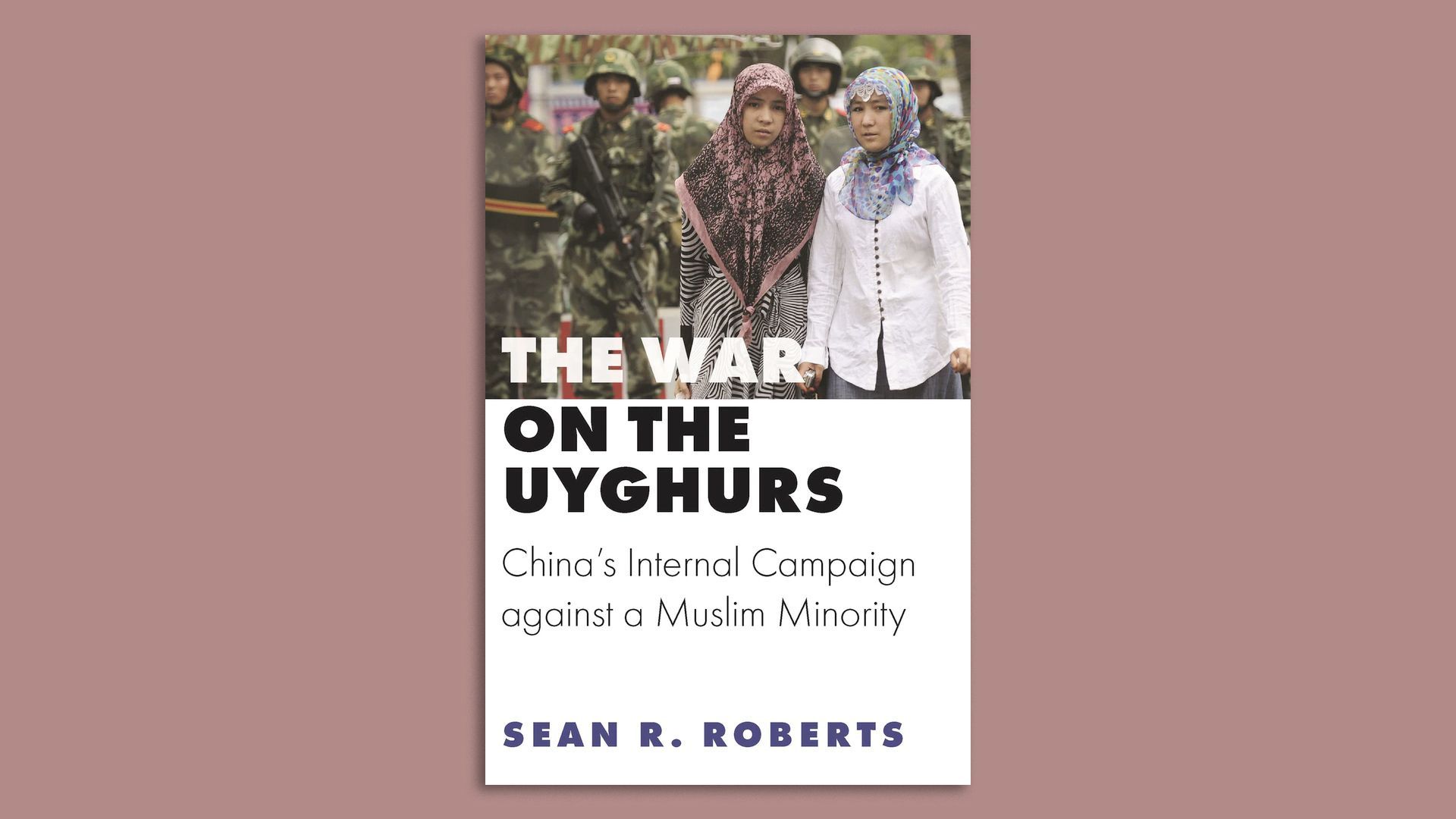The U.S. war on terror made life worse for China's Uighurs
Add Axios as your preferred source to
see more of our stories on Google.

Image: Princeton University Press, 2020.
The U.S. war on terror and its vague, overexpansive definition of terrorism have allowed authoritarian leaders around the world, and especially in China, to attack domestic groups under the guise of fighting terrorism, argues a George Washington University scholar in a new book.
Why it matters: Beijing has claimed its campaign of cultural genocide against China's Muslim minorities is a form of counterterrorism.
In "The War on the Uyghurs," Sean Roberts, a cultural anthropologist at George Washington University, writes that in the early days of the U.S.'s war on terror, China successfully lobbied the U.S. and other nations to add a small group of Uighur militants in Afghanistan to the terror designation list.
- This set a precedent for viewing the Chinese Muslim ethnic minority through the lens of global terror and eventually justifying China's brutal crackdown on their culture and religion.
The big picture: The U.S. designation at China's request of the Eastern Turkistan Islamic Movement (ETIM), a small group of Uighurs in Afghanistan, as a terrorist organization has contributed to a narrative that Uighurs are significantly intertwined with a global jihadi movement, Roberts argues.
- But "this group did not have the resources or the capacity to do anything inside China," Roberts told Axios in an interview.
- Though Uighur militant groups would later arise that did carry out a limited number of violent attacks in China, it was something of a self-fulfilling prophecy, said Roberts, in part the result of years of government repression after ETIM's designation.
Driving the news: On Nov. 5, Secretary of State Mike Pompeo announced the removal of ETIM from the U.S. terror list, a move welcomed by Uighur activists.
- What they're saying: “ETIM was removed from the list because, for more than a decade, there has been no credible evidence that ETIM continues to exist,” a State Department spokesperson said.
The bottom line: “The repressive measures presently being carried out against the Uighurs are undoubtedly the initiative of the Chinese government, which should be held accountable for them," writes Roberts.
- "But it has been the international obsession with combatting a vaguely defined ‘terrorist’ enemy that has allowed the PRC to implement these measures with impunity and that, at least in part, has inspired their excessively brutal and genocidal nature.”
